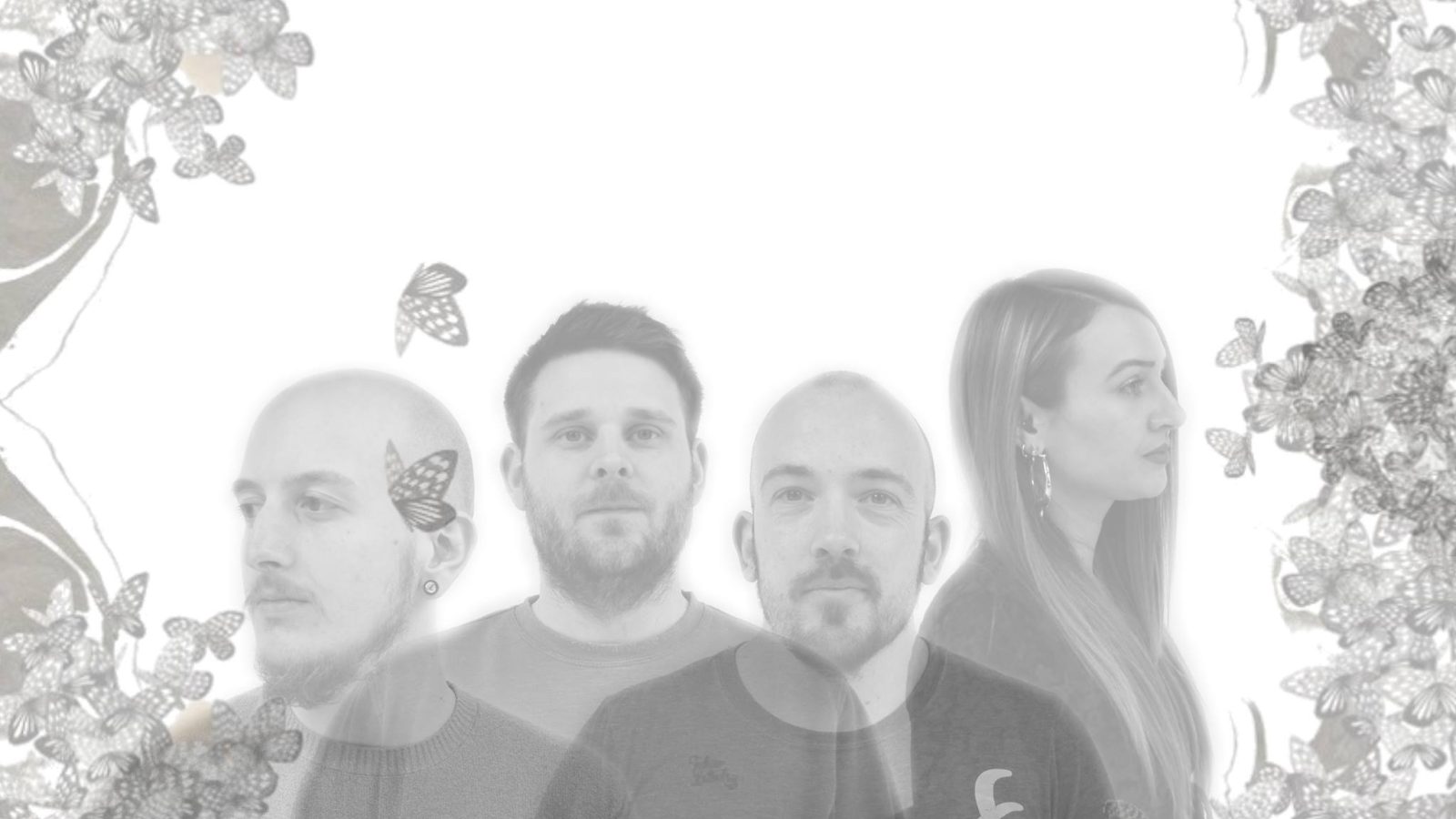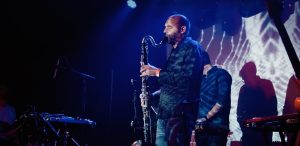
The Broken Orchestra discuss breaking out of the studio and developing their sound for the stage
Today’s musicians can take numerous paths to achieve their creative goals. The Broken Orchestra began doing so as a production project: the skill sets of founding members Pat Dooner and Carl Conway-Davis better equipping them to execute their ideas in the studio, rather than on the stage or in the rehearsal room. But as they developed, so too did a desire to perform with live instrumentation. Their latest EP Blinded is a reflection of their new found ambition, with vocalist Emily Render and guitarist Tom Kay (now fully-fledged band members) contributing to the record. alongside Dooner on rhodes and Conway-Davis on percussion and programming, they formed a formidable four-piece, without leaving their understated arrangements and production mindset behind. Ahead of their set at Free Jazz — a free-entry show during Manchester Jazz Festival which also features sets from Kinkajous, Plume and Dean Stockdale Trio — we spoke to Pat Dooner about the band’s transition from studio to stage.
How did you take The Broken Orchestra from production project to live band and what was key to making that transition a success?
‘When beginning to take The Broken Orchestra into a live setup, we faced two major challenges. Firstly, Carl and myself are not what we would class as standard musicians or even really musicians at all. Our background is in production and being locked away in studios where we can repeatedly make edits, run drop-ins and cut and paste sections. So trying to establish our position within the live set up was our first stumbling block. The second major issue was that our music, up until last year, featured several different guest vocalists from countries as far as the USA, Sweden, Greece and other parts of the UK. Logistically and stylistically, finding a vocalist was always going to be a challenge but it all seemed to happen by accident, but in the end weirdly naturally.
In 2016/17 we worked with solo artist Tom Kay on some of his recordings. We’d known Tom for a while but he had just recently asked us to get involved on production. Somehow, somewhere between those productions for Tom and mid-2017, we’d decided to get into rehearsal and see if we could make TBO tracks work live. It seemed to click pretty quickly: Carl would trigger samples, drums, bass, noise, I would play very simple but sympathetic rhodes parts and Tom added some great, underplayed guitar sections. Because of mine and Carl’s limitations it meant that we could not overplay musically and Tom just managed to restrain himself enough to make it really work.
The big issue has always been vocalists. They have either lived too far away, been too busy or have just not been quite right but when Tom introduced us to Emily and we got in and worked on some songs, it seemed to complete the line up perfectly. Emily did everything we could have hoped for on the tracks live and at times you’d be hard pushed to know if she had written them or not. She’s really made them her own. We owe a lot of the success of this to Tom and Emily who initially were a great driving force in getting us to rehearse and actually participate live. What they bring to the show is great also and Tom’s ability to underplay in certain sections like he does, knowing he could do so much more, really shows his professionalism as a musician.’
How did the creative process differ between Shibui and Blinded? Did you find yourselves writing differently, working in different environments and toward different musical goals, once the band was in place?
‘To be honest not a huge amount. Every track starts with a simple idea, players are brought in, stuff is recorded and ideas are developed. The only difference with Shibui and Blinded is that Carl and I worked with vocalists and musicians that were less involved. Vocalists and particularly musicians would come in, lay their parts down and apart from the odd check in here and there we wouldn’t hear from them or talk a great deal until it was finished or we needed something else (hence The Broken Orchestra) but with Blinded there was a lot more of involvement from start to finish. It was definitely not anything like a traditional band but the four of us got in most weeks and worked together in a room. Only mix was done alone really and then shared with the group. I’ve always been quite keen to retain the way we’ve always worked in terms of how we write and record and therefore there has and I think always will be that slight separation between musician, vocalist and producer but currently that separation is just slightly less so.’
There appears to be a British musical thread running through Blinded, that harkens back to the trip-hop and ambient production of the nineties. Is music of that era popular within the band and at all influential on the sound?
‘Without wanting to sound like we don’t take care, which we definitely do, nothing we really do is too intended. The influences on the members of the band are vastly different from stuff like 90’s hip-hop to The Smiths but there are inevitable crossovers and somewhere on the venn diagram sits stuff like Portishead, Zero 7, Bonobo etc. I guess we just end up making what we make. We always work on the idea that if it sounds good and gives you that feeling then you pursue it. It just so happens it comes out like it does.’
You’re based in Hull, which was of course the UK city of culture last year. Was the impact of the scheme beneficial to artists like yourselves and recognisable within Hull’s music scene?
‘Personally the CoC was not directly beneficial to us. What I mean is that we didn’t get involved in any projects directly and it felt at times that getting through to people in charge of making certain decisions was difficult. That said, it has been a massive positive force in the city even prior to 2017 and as time wore on into the year the enthusiasm soared and the music scene was totally buzzing. Several acts, for want of a better phrase, broke through and I’m sure that was in part to the CoC scheme. The other positive aspect was that a lot of the media outlets were more focused on Hull for that year so it felt easier to get heard, get featured and make contacts.’
What pieces of gear are most crucial to a Broken Orchestra live set?
‘Everything is crucial and I really feel we all bring something quite important. We currently run a setup that includes samplers, guitar, bass, rhodes, cymbal and percussion. Tom has a great range of guitar pedals from Big Sky, Hudson etc. Some of the things they can do are great and really add some versatility and ambience to the set up. The other main important aspect is the sampler as it really helps us to convey our use of chopped sounds and loops within the live set up. It would have been easy to work in a more organic way for the live stuff but we felt it was more important to still show the way in which the tracks were originally created, chopped and edited albeit from original recordings.’
What can the audience expect from next month’s show? Have you any new material to road test, any one off jams or ideas you’re thinking of running down?
‘In terms of what to expect from us from next month’s show hopefully you can expect a solid, tight, well-rehearsed representation of our recorded music. We’ll be playing a 30 minute set featuring material from the last few years and including stuff from our latest EP Blinded. We’re really excited to be playing Band on the Wall, it’s definitely one of the highlights from our summer run of shows.’







